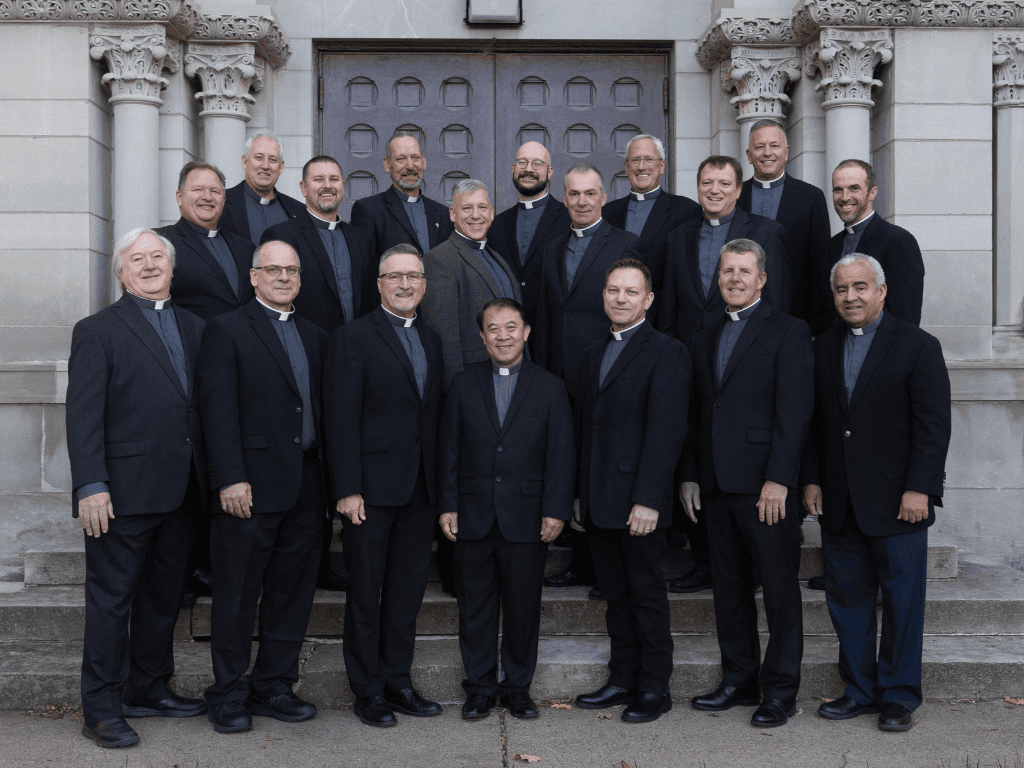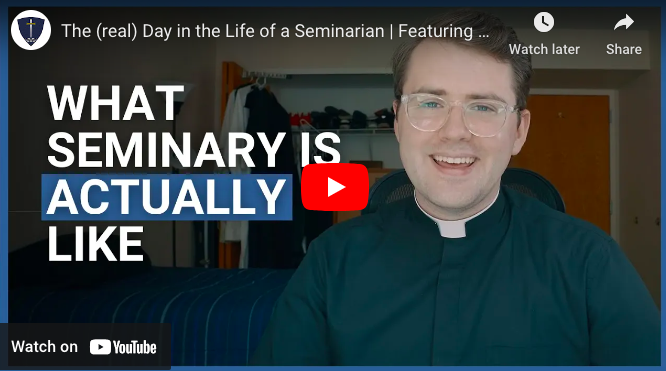Father Chris Collins, St. Thomas’ new vice president for mission, sat down with Rabbi Avi Olitzky to discuss the meaning of Rosh Hashanah, the Jewish New Year 5782. Rosh Hashanah is celebrated in 2021 starting at sundown Monday, Sept. 6, and ending at sundown Wednesday, Sept. 8, coinciding with the start of the new academic year for the university. The rabbi is newly serving as a chaplain to St. Thomas' Jewish students, faculty and staff.
Father Chris: Rabbi Avi, can you say a little bit about the history, significance and spiritual meaning of how Rosh Hashanah is celebrated in the Jewish Community?
Rabbi Avi: Thank you. I am pleased to be a new part of this community and to learn more about the St. Thomas community. That said, it is beautiful that we have this coincidence of time this year. In our Jewish tradition we learn that there are so many different countings of time and so many new years. One of those is the new year for years, the new year for the calendar. That is Rosh Hashanah, which means head of the year. We begin the counting of the season and time in this month.
Rabbis have long debated for millennia why is this the counting of time, why is this the beginning of the new year. It seems to be because this is the creation of the world. When we say this is the creation of the world, there is a debate. Is it the start of the world, day one, or is it the end of day six when humanity is created?
It seems to be that this is the creation of humanity. The true beginning of the universe, the true beginning of God’s kingdom is when we enter the world as loyal subjects.
To celebrate the beginning of counting time is no different than when students come into our hallowed halls. We are not a university without our students and God needs to be God with God’s loyal followers. And Rosh Hashanah is the celebration of the beginning of that time.
Father Chris: That’s a very helpful explanation and especially the relationality between not only us as humanity, but especially in relationship to God. How do the celebrations happen in the different parts of the Jewish community?
Rabbi Avi: Rosh Hashanah in the most traditional settings is observed as two days and some of the more progressive denominations observe it as one day and then that has to do with whether you are in the land of Israel or outside the land of Israel. And what does it mean to be in the diaspora outside of the land of Israel
Every Jewish festival begins the evening of the night before. Just like we read in the Book of Genesis, there was evening and there was morning the first day and there was evening and morning the second day. So every day in the Jewish calendar begins at night and ends subsequently the next evening at sundown or an hour after sundown.
Often these holy days, and essentially these High Holy Days are spent (pre Covid) with many hours in synagogue, lots of long high liturgical services and worship. They are great, large festive meals in the home where family and friends gather.
The past 18 months has been a change and a disruption to that celebration and periods of worship. But it is a strong time of what we call periods of renewal and penitence and repentance.
Father Chris: Can you tell us more about both the celebratory dimension and the penitential dimension and why is that?
Rabbi Avi: Judaism teaches that there are three types of relationships. Perhaps this is where the signs of the cross come in. The signs of the cross if we think about it are three dimensional. There are six dimensions: up, down, left, right, forward and back.
Likewise, Jewishly speaking, we have the relationship between a person and themselves (ben adam l’atzmo) the relationship between a person and their neighbors (ben adam l’chavero) and the relationship between a person and God (ben adam l’makom).
When we think about these three relationships, we are supposed to spend all year long working on our personal relationship and our relationships with each other, but on the High Holy Days, especially on Yom kippur, which is the week and a half after Rosh Hashanah that’s when we focus on this relationship with God. You can’t possibly work on your relationship with God unless you’ve done right with your fellow man.
Father Chris: A big way that we talk about our identity and our mission as a whole, coming out of the Catholic tradition, which comes out of the Jewish tradition is about all those multi-dimensional relationships and serving the common good, starting with our own relationship with God, who is the common good -- and then we need to be repairing those relationships in an ongoing way. Those are all great themes for us in the beginning of the year to be considering.
Rabbi Avi: The blessings of renewal, Father Chris, always begin within.
Father Chris: Thank you so much for your time. Blessings on all of you. Let’s let this be a great year together and attentive of all those great relationships and ultimately the gift of life that comes to us from God. Blessings on this new year and happy Rosh Hashanah.
Camps Ministry and its chaplains are members of clergy and religious scholars trained to provide spiritual care to people of all traditions, religious backgrounds, and people who don’t identify with any faith. They are Catholic, Protestant, Muslim, and Jewish.
You can reach a chaplain Monday - Friday, 8:30 am - 4:30 pm at 651-962-6560, or by emailing Campus Ministry.






